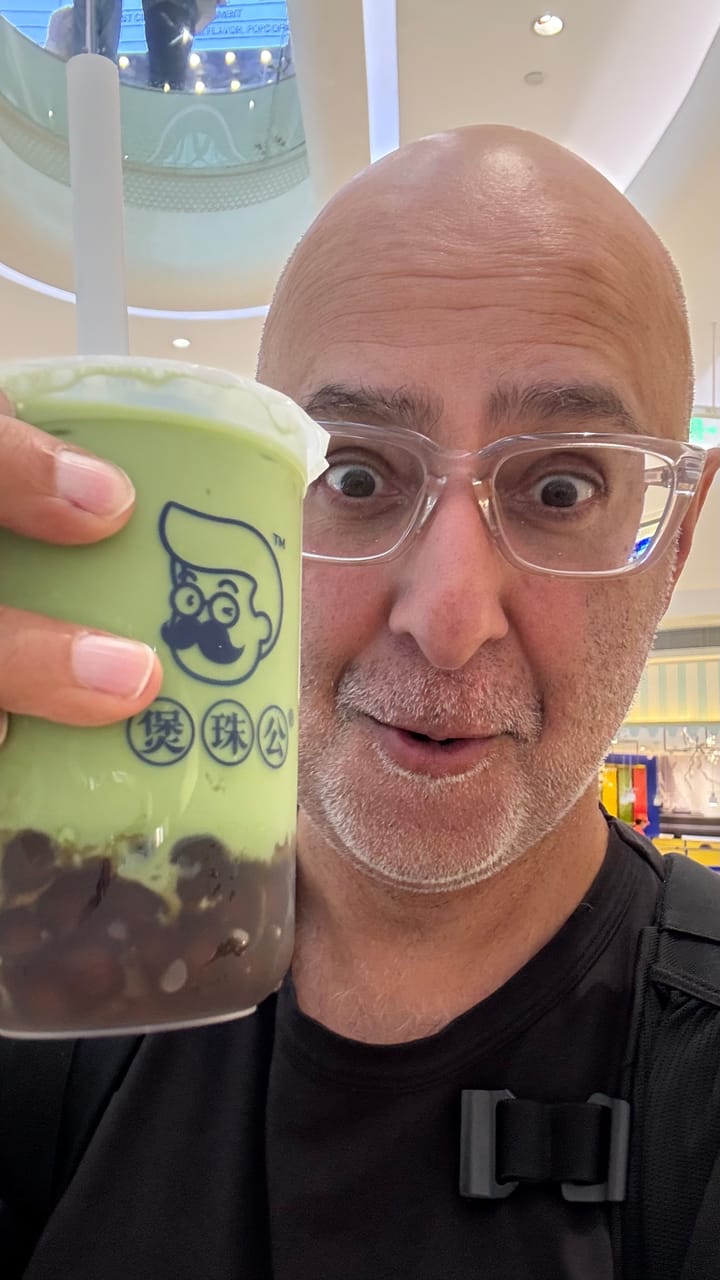Homesick for an Internet That No Longer Exists
Feeling nostalgic for the old internet? A look at our shift from genuine connection to social media performance, and the search for authenticity.

I see it everywhere. Photos on my phone, deliberately filtered to look grainy and washed out, as if they were taken on a disposable camera from 1998. The quiet resurgence of simple, text-based newsletters delivered directly to your inbox, away from the noise of the main feed (where you can’t find anything from your actual friends anyway). A shared, unspoken yearning for a time when the internet felt less like a performance and more like a conversation.
We are experiencing a wave of digital nostalgia. But this isn't just about retro aesthetics. It is a psychological cry for something we have collectively lost. We are homesick for a version of the internet that no longer exists.
The Promise of the Early Internet
I remember it vividly: the screeching, hopeful sound of a dial-up modem in the early 1990s connecting me to the world through Netscape Navigator. More than that, I remember spending weeks of evenings and late nights on IRC—Internet Relay Chat—on the servers of the CERN particle accelerator in Switzerland. The screen was black, the text was green, and the feeling was electric.
It wasn't a graceful ballet of slick user interfaces; it was more like a chaotic dogfight of pure information. Sometimes it was just two of us, but often it was a squadron of five or six, all switching altitudes at lightning speed. It was clumsy, text-based, and often pseudonymous. The important thing wasn't who you were, but what you thought. We weren't brands; we were just brains, connecting over a shared passion.
That was the foundational promise of the early internet: connection. Its purpose was to find your tribe. The technology was merely a conduit for human interaction.
The Performance Trap of Social Media
The modern internet, for all its technological marvels, is built on a completely different premise: performance. We have moved from an era of connection to an era of consumption. Our lives have become the raw material for content to be curated, polished, and presented for public judgment on the infinite scroll. We are no longer just connecting; we are performing for an audience.
The psychological shift this has created is profound. The joy of discovering a new idea has been replaced by the low-level anxiety of presentation. We are constantly, subconsciously asking ourselves: Is this post good enough? Is this photo flattering enough? Is this opinion safe enough to share? The tyranny of the algorithm pushes us towards polished homogeneity and away from the messy, authentic reality of being human.
A Kiwi Paradox: Authenticity vs. Performance
This creates a particular kind of friction, I think, for us in New Zealand. Our national identity is deeply intertwined with the idea of being "down-to-earth." We pride ourselves on a healthy suspicion of anyone who gets "too big for their boots." The "Number 8 wire" mentality is not just about ingenuity; it's about a lack of pretension. How does this square with the global, digital pressure to become a polished personal brand? The short answer is: it doesn’t. It creates a kind of national cognitive dissonance. We are a people who value authenticity, living in a digital world that increasingly demands performance.
The Real Antidote: A Richer Offline Life
So where do we go from here? The first step is to be more conscious and intentional with our digital lives. It means seeking out spaces that revive the spirit of that early internet—niche forums, text-based newsletters—where the conversation is deeper and the stakes are lower.
But this only treats the symptom. Perhaps the deeper solution is more radical. The real antidote to a hollow, performative online life isn't just a better online life. It is a richer, more meaningful offline life.
The hollowness we feel online is often a reflection of a hollowness in our real-world experience. We are performing for an audience, but we have forgotten to gather the raw material for the story. We are trying to edit a film with no footage.
The solution, then, is to step away from the screen and start filming again. It means joining the club, volunteering for the committee, taking the class, having a conversation with a neighbour over the fence. It means accumulating real-world experiences, both big and small, that give us something tangible and interesting to think about. It means rebuilding our social connections in the physical world, so we have something real to talk about when we do connect online.
This is how we break the cycle. A rich offline life reduces the pressure to perform online. It gives our digital presence weight and authenticity, because it is anchored in real experience. It allows us to use the internet as it was first intended: not as a stage, but as a meeting place for people with full lives and interesting things to say.
Oh, and I just signed up for an in-person event next month. And I won't be live-tweeting it.



Comments ()